What we do

We are a non-profit organization in Germany that has taken on the task of supporting the weakest people in Myanmar who have fallen on hard times due to disasters or structural poverty.
Through our projects, we are able to achieve lasting and sustainable improvements with local families, local partners, authorities and employees. The support is based on the principle of self-help, self-determination and personal responsibility.
Here you can view and download our current anniversary flyer.
Here you can view and download our current anniversary flyer.
Our team
Our team in Germany is mainly composed of volunteers. All three full-time employees are active on the board. In addition, there are many other supporters who, through their help, raise awareness of Projekt Burma e.V. and collect donations.
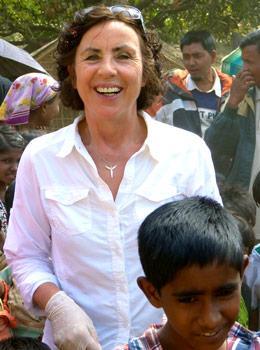 Marion Mück
Marion Mück1st ChairMarion is the founder of Project Burma e.V. and the heart of every project. She manages all projects in our office in Germany. Every year she travels to Myanmar to check on all projects and meet with local project partners and staff. She is pretty much everything in one: thinker, organizer and the final decision-maker before a project is tackled.
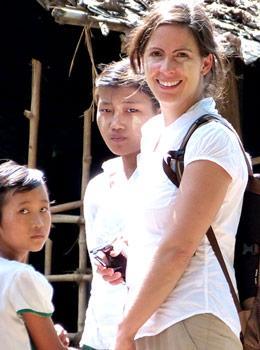 Tina Werringloer (M.A.)
Tina Werringloer (M.A.)2nd ChairTina is a midwife and Master of Disaster (and Emergency Management). She manages the projects together with Marion from Germany. Her focus is on health projects and disaster relief. Together with Marion, she regularly travels to Myanmar to provide intensive support for the projects.
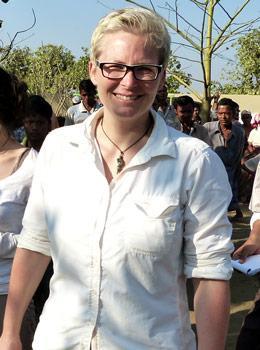 Dr. Med. Gunver Werringloer
Dr. Med. Gunver Werringloer3rd ChairwomanOur treasurer, responsible for all incoming payments and donation receipts. Gunver is a general practitioner in her own practice and looks after our health staff on site as well as the doctors who will be leaving in the future. She is the expert for all our medical questions concerning the projects. Thanks to her great commitment, we have already gained countless new members and donors.
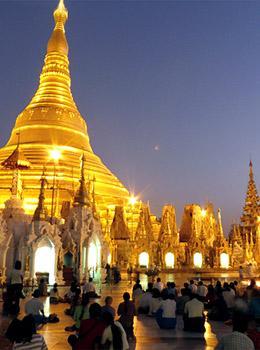 Project management
Project managementon the ground in MyanmarWithout local project managers, the wide range of tasks in the areas of education, health, disaster relief, water and hygiene could not be accomplished. They are both mediators between our two cultures and a link to companies and institutions. Our project managers in Myanmar are as individual as the projects themselves. Each one supervises their projects very conscientiously and provides us in Germany with all the necessary information almost daily.
Our local partners
We work together with our Burmese partners on a variety of projects in a trusting relationship.
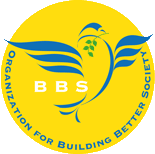
Organization for Building better society
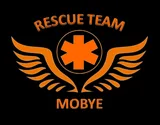
Rescue Team Mobye
Organization for Building better society
Rescue Team Mobye
How it all began
At the turn of the year 2007/2008, I traveled to Myanmar with my husband. When we arrived, our guide met us. A young Burmese man whose charisma captivated us immediately and who made us feel like we had known him for a long time. We traveled through Burma with him for three weeks and came to appreciate and love the country and, above all, its people. We became particularly attached to the children of this country and have felt a strong connection to them ever since.
During our trip, we also visited the Irrawaddy Delta, which was largely destroyed just a few months later during the night of May 3, 2008, by Cyclone Nargis. More than 140,000 people lost their lives and many were left homeless. This was the impetus for us to commit ourselves to the country and its people, who have become very dear to our hearts. Spontaneously, unbureaucratically and with endless enthusiasm, we managed to organize help for the survivors, despite the prohibitions of the military government. By December 2008, we had collected more than $28,000 and sent it to Burma. Our Burmese friends on the ground used this money to buy food, clothing, tarpaulins and building materials, boats, fishing nets, seeds and fertilizer. And then, sometimes under the most difficult conditions, they brought these things to the destroyed area.
After we traveled to the destroyed delta again at the end of 2008 and were able to see with our own eyes what our help had achieved, it was clear to us that we wanted to get involved with these people on a permanent basis.
Since July 2009, we have been recognized by the tax office as a non-profit organization.
Yours sincerely, Marion Mück, 1st Chairwoman
During our trip, we also visited the Irrawaddy Delta, which was largely destroyed just a few months later during the night of May 3, 2008, by Cyclone Nargis. More than 140,000 people lost their lives and many were left homeless. This was the impetus for us to commit ourselves to the country and its people, who have become very dear to our hearts. Spontaneously, unbureaucratically and with endless enthusiasm, we managed to organize help for the survivors, despite the prohibitions of the military government. By December 2008, we had collected more than $28,000 and sent it to Burma. Our Burmese friends on the ground used this money to buy food, clothing, tarpaulins and building materials, boats, fishing nets, seeds and fertilizer. And then, sometimes under the most difficult conditions, they brought these things to the destroyed area.
After we traveled to the destroyed delta again at the end of 2008 and were able to see with our own eyes what our help had achieved, it was clear to us that we wanted to get involved with these people on a permanent basis.
Since July 2009, we have been recognized by the tax office as a non-profit organization.
Yours sincerely, Marion Mück, 1st Chairwoman
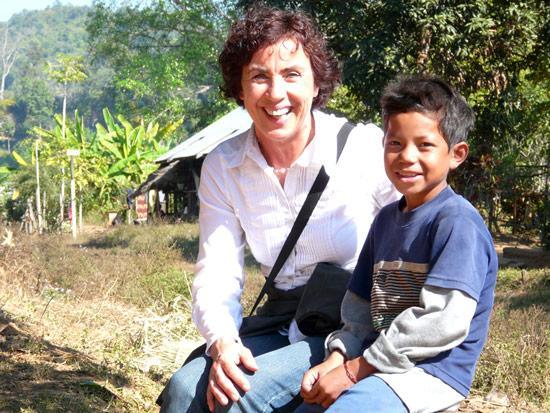
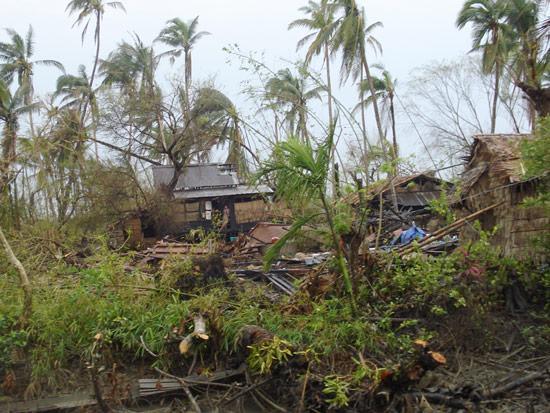
Our goals
In 2015, the United Nations adopted the 2030 Agenda. At the heart of this agenda are 17 goals for a better world. All of the goals are guided by the vision of ending poverty, fighting inequality and stopping climate change. The most vulnerable should be at the center of these goals. These goals can only be achieved through intensive cooperation and collaboration between countless countries and initiatives.
Projekt Burma e.V. is proud to be able to make a small contribution to creating a better future for the poorest in Myanmar.
Projekt Burma e.V. is proud to be able to make a small contribution to creating a better future for the poorest in Myanmar.
 NO POVERTY
NO POVERTYWe try to break the cycle of poverty through targeted sponsorships and support for education.
 NO HUNGER
NO HUNGERBy supporting our sponsored families and providing targeted food assistance in crisis situations, we help to ensure that the people in our projects do not have to go hungry.
 HEALTH AND WELLBEING
HEALTH AND WELLBEINGPromoting the health and wellbeing of all the people living in our projects, as well as building clinics and hospitals, helps to ensure their health and wellbeing.
 HIGH-QUALITY EDUCATION
HIGH-QUALITY EDUCATION HIGH-QUALITY EDUCATION
 GENDER EQUALITY
GENDER EQUALITY In our projects, the inclusion of both genders is important to us. Through a women's committee, particular attention is paid to the needs of our female patients when building clinics in Magyizin, and to ensuring that maternal mortality is reduced.
 CLEAN WATER AND SANITATION
CLEAN WATER AND SANITATION By building toilets and drinking water wells, we make a significant contribution to maintaining health and providing health education locally.
We are transparent
Initiative Transparente Zivilgesellschaft
We are committed to transparency and have therefore joined the Transparent Civil Society Initiative. Only organizations that provide the following 10 pieces of information to the public and keep them up to date are allowed to use the initiative's logo on their website.
This way, you can find out what we do, where the funds come from, how they are used and who the decision-makers are.
We are committed to transparency and have therefore joined the Transparent Civil Society Initiative. Only organizations that provide the following 10 pieces of information to the public and keep them up to date are allowed to use the initiative's logo on their website.
This way, you can find out what we do, where the funds come from, how they are used and who the decision-makers are.

